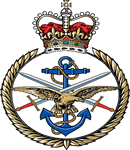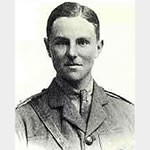Commemorated: | |||
| 1. Memorial: | Freemasons VC Memorial | Great Queen Street | |
Awards & Titles: | Victoria Cross | ||
Family :
Smyth was born in 1893 in Teignmouth, Devon, the son of William John Smyth (1869–1893), a member of the Indian Civil Service, and Lilian May Clifford. His grandfather was Army officer Henry Smyth, who was the second son of John Henry Smyth (1780–1822), of Heath Hall, Wakefield, Yorkshire, a Whig MP for Cambridge University (1812–1822) and Lady Elizabeth Anne FitzRoy, daughter of George FitzRoy, 4th Duke of Grafton. His great-uncle John George Smyth was an MP for the City of York.Education & Career :
Smyth was educated at Dragon School, Repton, and the Royal Military College, Sandhurst.
Service Life:
Campaigns:
- The First World War 1914-1918, World-wide.
| Unit / Ship / Est.: 15th Ludhiana Sikhs |
| Action : War Survivor |
Although many perished in times of national conflict and in the service of their country, many more survived including those interned as Prisoners of War. Stories of those who did survive are included as part of this site, especially those with high gallantry awards, those included against an external rolls of honour and those who had a distinguished career in wartime and military leaderhip.
He was 21 years old, and a lieutenant in the 15th Ludhiana Sikhs, 3rd (Lahore) Division, Indian Army during the First World War, when his actions earned him the Victoria Cross (VC). In June 1915, Smyth was awarded the VC, the United Kingdom's highest award for bravery in combat. The citation for this award, published in the London Gazette read:
For most conspicuous bravery near Richebourg L'Avoue on 18 May 1915. With a bombing party of 10 men, who voluntarily undertook this duty, he conveyed a supply of 96 bombs to within 20 yards of the enemy's position over exceptionally dangerous ground, after the attempts of two other parties had failed. Lieutenant Smyth succeeded in taking the bombs to the desired position with the aid of two of his men (the other eight having been killed or wounded), and to effect his purpose he had to swim a stream, being exposed the whole time to howitzer, shrapnel, machine-gun and rifle fire.
As well as Smyth's VC, the Indian Distinguished Service Medal was posthumously awarded to the men killed during this incident. Smyth was also awarded the Russian Order of St. George, Fourth Class, in 1915, and was promoted to captain on 24 August 1916.
Smyth continued his war service in Egypt and on the North-West Frontier.
Citations & Commemorations :
For most conspicuous bravery near Richebourg L'Avoue on 18 May 1915. With a bombing party of 10 men, who voluntarily undertook this duty, he conveyed a supply of 96 bombs to within 20 yards of the enemy's position over exceptionally dangerous ground, after the attempts of two other parties had failed. Lieutenant Smyth succeeded in taking the bombs to the desired position with the aid of two of his men (the other eight having been killed or wounded), and to effect his purpose he had to swim a stream, being exposed the whole time to howitzer, shrapnel, machine-gun and rifle fire.Masonic :
| Type | Lodge Name and No. | Province/District : |
|---|---|---|
| Mother : | Farriers No. 6305 E.C. | London |
Initiated | Passed | Raised |
30th November -0001 | 30th November -0001 | 30th November -0001 |
Source :
The project globally acknowledges the following as sources of information for research across the whole database:
- The Commonwealth War Graves Commission
- The (UK) National Archives
- Ancestry.co.uk - Genealogy, Family Trees & Family History online
- ugle.org.uk - The records of the United Grand Lodge of England including the Library and Museum of Freemasonry
Additional Source:
- Founder Researchers : Paul Masters & Mike McCarthy
- Researcher : Bruce Littley
Last Updated: 2023-04-02 10:08:00

